A question that is often asked, especially amongst musicians who have developed their musical talents to a good level with little, or no music theory training. Is learning music theory actually worth it? It can be a controversial topic to discuss as opinions on this matter are mixed. Knowing that it’s more than possible to develop your musical skill with the instrument of your choice without any music theory also makes musicians more inclined to not learning it. There are even people who state that learning music theory is actually bad for you. Music is a form of artistic expression, however, many musicians believe that music theory can actually limit you in how you express yourself musically. We’ll go into more detail about this later, but let’s answer the question you came here for.
Is learning music theory worth it? To put it simply, yes you should learn music theory, however, we have to elaborate more on our answer. We’ve come to the conclusion that this is the wrong question to ask. Instead of asking if we should be learning music theory, we should be asking when we should learn it? Before I explain this thought, let me first explain to you what music theory is?
Table of Contents
What is Music Theory?
An easy way to put it, Music Theory is the language of music, more so, the grammatical rules and structures that formulate the musical sounds we hear. It can also be looked at as the rules of music. Similar to like any sport or game, its important to understand the rules if you want to play properly. If you don’t know the rules, you’ll have no idea what’s going on. You also won’t be able to appreciate the sport/game, whether you’re participating in it or just spectating.
However, music isn’t like any game or sport. There are no rules that need to be strictly followed at all times. You actually don’t need any music theory knowledge to sing a song or produce music with an instrument. A lot of the times, it can happen naturally.
This is why we refer to it as the language of music.
The Language of Music
Kids can learn to speak a language fluently without having to study it. They learn from being surrounded by it, constantly hearing other people speak, listening to conversations, and speaking it. They’re basically learning how to speak a language all through the experience. If you think about it, we learn to speak our native language before even learning about any grammatical rules. Its all natural to us.
We then start learning grammar once our language skills are at a developed enough level. We’re not learning grammar to learn how to speak a language, instead, we’re learning it to further understand it.
This is the same with music. Many musicians learn music through experience. Whether it be from picking up an instrument and playing or from listening to our favorite songs. It’s very possible to get far with your music abilities without any Music Theory knowledge. So just like any language, we don’t become fluent by learning theory, we can do so through experience. However, Music Theory will help you understand more of what you already know. Questions like, “Why do these chords work so well together?” or “Why I do love this part of the song?” can be answered if we understand the “grammar” of music.
So from what you can see, while Music Theory isn’t entirely needed at the start of your musical journey, it’s something you’re going to want to learn someday as a musician. This brings us back to the real question you should be asking.
The Real Question: When Should We Learn Music Theory?
The answer to this question is different for everyone. Our best advice would be to start with the music first. Experience music as much as you can, just like if you were learning a language as a child. Listen to it, start learning how to play an instrument, and increase your vocabulary in music. The reason why we believe that you should start with the music first is that it makes it easier to learn the theory later.
Once you begin learning actual Music Theory, having at least some musical experience will make it easier to understand it. Theory won’t just be a bunch of terminology and explanations to why music is how it is. You’ll be able to apply what you learn from theory to what you already know, overall enhancing your understanding.
There are also benefits that come from learning Music Theory, other than being more knowledgeable in the language of music.
Benefits of Learning Music Theory
1. Understand How Music Works
One of the main benefits that come from learning theory is having a better understanding of how music works. Like we’ve already been discussing, in a sense, music has a system that explains how the songs and sounds we listen to are constructed. You’ll also be able to have a better idea of how these talented composers and performers put together their music.
2. Develop a Better Foundation of Music
Having an understanding of Music Theory will strengthen your overall foundation as a musician. As musicians, we continue to grow throughout our musical journey. Having knowledge in Music Theory can make it easier for you to understand new concepts and ideas. You’ll have more to look back on and work with as you progress as a musician.
3. Communicate With Other Musicians
Another benefit that comes from learning music theory is having the ability to communicate with other musicians and composers. Like we’ve been saying throughout this article, music is the language and theory explains how it’s structured. When collaborating with other musicians, you’ll be able to communicate with each other more effectively. You will also be able to adjust and be more flexible in how you play. This means you’ll have a bigger contribution to the group as a whole.
Whether it’s jamming with a group of friends in a garage, working with a band, or being a part of a professional orchestra, being able to communicate with everyone through your understanding of Music Theory is going to make things much easier.
4. Helps You Become a Better Songwriter
Even songwriters will benefit greatly from learning Music Theory. When you understand theory, the process of writing a song may change for you. You won’t be sitting around figuring out what chords will work well together to achieve the sound you’re looking for. Instead, you’ll be able to think relative to the key. You’ll start constructing songs around the key instead of trying to blindly put together chords.
You’ll also have a better understanding of the unique functions of each chord. This will make it easier to put together chord progressions while also understanding what the progression is doing.
5. Being Able to Appreciate Music More
Of course, the more you understand theory, the more your appreciation for music grows. You begin to think about the thought processes that were involved when making a song that you listen to. You’ll understand how a song is structured and the musical choices that were made to put it all together. You can even use what you learn to improve your own music.
You get to see the other side of music. It’s like the behind the scenes action in a sense. On one side you have the sound, the music that evokes the emotions of the people who listen to it. And on the other side, we have the technical aspects that explain how the music works.
You as a musician will become more familiar with the music you listen to and play, forming a deeper connection to the art form.
The Reasons Why Musicians Think Learning Music Theory is Bad for You
It Limits Your Creativity
There is an idea that learning Music Theory can lead to limitations of our own creativity as musicians. Instead of thinking freely and expressing ourselves through music, we become more focused on the rules, structures, and technical aspects found in music theory. Music then becomes more structured than free. While having all of these rules seem to be very limiting, the truth is, they aren’t.
It is possible at the beginning of your studies that you may be more constantly aware of everything you do musically and how it applies to theory. Our brains’ mental resources are being devoted to theory instead of our creative energy. This is just a learning curve that you might find yourself in at the beginning. Once you get over this learning curve and become more familiar and fluent with concepts and fundamentals of theory, it will change. It becomes a part of your creative vocabulary, becoming a tool that serves you instead of a limiting obstacle.
Takes too Long and is a Waste of Time
There are musicians out there with the belief that learning Music Theory is a complete waste of time. Like we mentioned earlier, it is possible to develop your music abilities with an instrument to a respectable level without any knowledge of Music Theory. There are even successful artists and musicians who are known to not have any Music Theory background. Because of this, people believe that the time used learning Music Theory can be used towards more “important” things.
As you can already see after reading this far, Music Theory is definitely not a waste of your time. Its an investment to learn for sure, but we believe that the benefits of having this knowledge outweigh the costs that it takes to obtain it.
It’s Not Relatable to the Current Era of Music
There are people who believe that Music Theory isn’t relatable to the music we listen to and make today. In other words, it’s “outdated” and “not necessary.” This is, however, far from the truth. With how easy and accessible music is today, anyone can pick up an instrument and start learning. A lot of amazing songs can come from artists or bands that just jam out in their garage.
In many instances, these musicians don’t even consider learning Music Theory. However, choosing not to invest some time into learning theory can hold you back in the long run. No matter what era it is, it will be helpful for you to understand Music Theory. Just think about it, there are reasons why songs become big hits. Maybe it’s a certain sound? The message in the lyrics? While that all can be true, you can even further analyze a song by looking at how it was structured by the songwriter or composer.
Doing so can give you an idea on the formula that makes these songs so successful. You can then apply what you learn into your own creative projects and possibly come out with a hit song too.
Experimental Approach Vs Guided Approach
We want to finish our discussion by talking about two approaches to learning music.
The Experimental Approach
Do you know what would happen if you told a young child (4-5 years old) to sit down at a piano and start creating a song? The process may look different. You will see that the child will begin experimenting with sounds, trying to distinguish what sounds work well together. They don’t have any prior knowledge of Music Theory or influences that shape them to believe what’s right or wrong. It’s all natural experimentation, listening to our brains signals to determine what sounds good and what doesn’t. With some time, even a young child can put together a nice song or tune, even though they don’t really understand how and why it all works out.
This is the Experimental Approach to learning music. It’s very possible to just increase your chord vocabulary and start playing around with progressions. You’ll learn as you go and have fun doing so, allowing your creativity to lead you. While this sounds ideal to many, you will experience limitations if you only focus on this approach. You will learn things, but not necessarily in the best way. Actually, it might be better to even say that you’re discovering things instead of learning them.
The Guided Approach
This approach is when we allow ourselves to be guided as we learn music, whether by a teacher or by the things we learn on our own. Instead of “discovering” something new in music through experimentation, you have more of a textbook style of approach. You apply everything you learn into your music with an understanding of everything you’re doing. This helps break the limitations that you would get from an experimental approach because you’re not walking into everything blindly. To you, everything has meaning and reason in music. This is a great approach, however, there are still limitations to it.
This type of approach on music leaves you susceptible to developed biases. These biases can lead you to rely more on the technical aspects of music instead of your own creativity. You also might find yourself less willing to take musical risks when writing music.
This is why you need a good balance of both approaches.
A Balance of Both Approaches
It’s okay to experiment as discovery is all part of the musical journey. But don’t stop yourself there, put an effort into learning more about what you have discovered. Study the technical aspects of what was discovered and try to understand why it works. Using a good balance of both approaches as you continue to learn music will the best for you in the long run. You’ll be able to develop your creativity while also learning the technical aspects of music that are important to be aware of.
Final Thoughts
Well, there you have it. Learning Music Theory is definitely worth your time, especially if you find yourself wanting to be a more serious musician. In the end, it’s not really if you should learn it, it’s when you should learn it. Hopefully, we’ve given you a reason for you to learn Music Theory, if not now, then maybe sometime in the future.








Leave a Comment